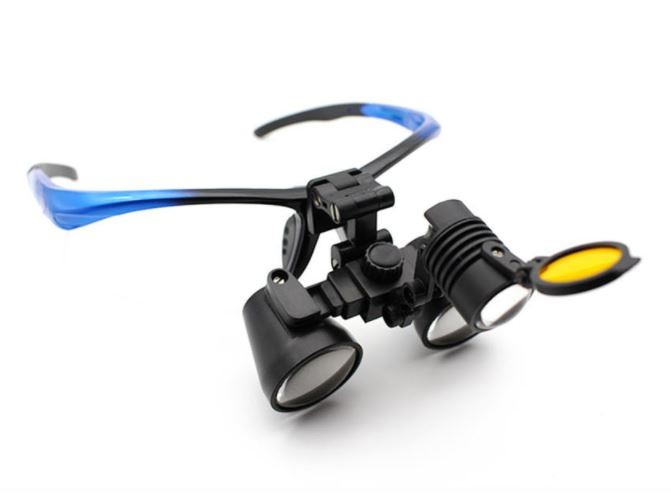Extend The Life Of Your Surgical Loupes By Cleaning And Disinfecting
Needless to say, the benefits that surgical loupe offers when it comes to enhancing your visual acuity, comfort, quality of work, and precision during operations is incomparable. Because of the important role it plays in every surgical procedure that you perform, operating without the surgical loupe can be quite challenging. We understand how you value your surgical optical loupes. To help you extend the useful life of your optical magnification aid, we have decided to write this article about how to properly care for your loupes.

How to clean your surgical loupes?
Cleaning a surgical loupe is quite easy. However, you need to be extra careful in cleaning and handling your optical instrument to make sure it does not get scratched or damaged. Apart from that, you also have to know the things that you can and can't do when cleaning it. Here's a step by step guide you can follow.
1. Remove dust, loose particles, and gross debris by spraying the lens and all other parts of the loupe with the use of a can of compressed air.
2. Disinfect the surgical magnifying loupe. Wet a micro fiber cleaning cloth or cotton swab with a mild soap, 70% isopropyl alcohol, or a disinfectant solution recommended by the surgical loupes manufacturer and then gently wipe it into the loupe.
3. Dry the loupe with the help of a clean microfiber cleaning fabric.
4. Finally, clean the optical lenses with a microfiber cleaning fabric and an optical lens cleaning fluid that is safe for coated-lens surfaces.
And that's it. As much as possible, clean and disinfect your surgical optical loupes every after use to avoid infection and to protect it against any damage.
What should you not do when cleaning the surgical loupe?
- Do not use harsh cleaning agents or disinfectant solutions other than what is recommended by the manufacturer most especially those that contain glutaraldehydes or iodophors.
- Do not run the loupe under water.
- Do not submerge it in an ultrasonic cleaner, water or other liquid.
- Do not sterilize the loupe with gamma radiation, autoclave, steam, ultrasonics, or chemiclave.
- Do not use cotton gauze as a substitute for a cotton swab or micro fiber cleaning fabric.
Why do you need to properly care for your loupes?
Surgical loupes can be one of the most expensive investments you have for your career. The loupe can also be among the most important precision instruments that you regularly use when performing surgical procedures.

Surgical magnification loupes can collect loose grit, dust, and other small particles daily. They can also accumulate debris or materials produced by the operation you performed like some driblets of blood. These small particles, if left uncleaned, can harm your loupe and scratch its lens which can lead to reduced precision, clarity, optical performance.
Aside from being quite expensive and from its importance, customizing a new surgical loupe, most especially the through the lens or TTL loupes, can be pretty time-consuming. If you are a busy surgeon who performs surgical operations on a daily basis, you can not afford to wait for days, if not weeks or months, to have another set of magnification loupes.

